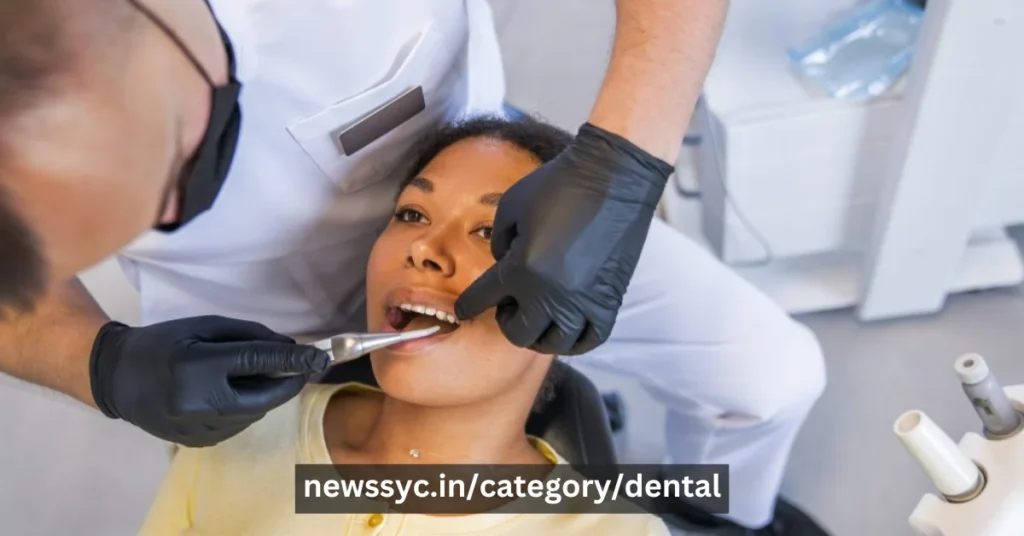Understanding the Importance of Dental Health
Maintaining good dental health is crucial for overall well-being and can significantly impact a person’s quality of life. Oral health is directly linked to various systemic health issues, highlighting the importance of proper dental hygiene. Poor oral health can lead to conditions such as cardiovascular disease, diabetes, and respiratory infections. This underscores the need for individuals to prioritize their dental care, which includes regular check-ups and good practices at home.
One of the most common dental issues, cavities, arises from neglecting oral hygiene. Bacteria in the mouth feed on residual sugars from food, producing acids that erode tooth enamel. Regular brushing and flossing, complemented by routine visits to a dental professional, serve as effective preventive measures. Gum disease, another prevalent concern, can lead to tooth loss if not managed appropriately. Maintaining healthy gums is vital for preventing inflammatory conditions that can extend beyond just oral health.
Furthermore, dental hygiene plays a significant role in self-esteem and confidence. A healthy, bright smile promotes positive social interactions and can enhance one’s self-image. Individuals facing dental problems, such as stained or missing teeth, may experience insecurities that affect their personal and professional lives. Investing time in dental care not only helps in maintaining oral health but also contributes to a person’s overall confidence and well-being.
In conclusion, the importance of dental health cannot be overstated. It connects to a broader picture of health and influences many aspects of an individual’s life. Regular dental visits, alongside effective dental hygiene practices, are essential steps in ensuring a vibrant smile and preventing common dental issues. For further insights on maintaining dental health, resources such as newssyc.in/category/dental can provide valuable information and guidance.
Latest Trends and Innovations in Dentistry
The field of dentistry is continuously evolving, with several groundbreaking advancements improving patient care and outcomes. One notable innovation is laser dentistry, which utilizes focused light beams to perform various dental procedures. This technique minimizes discomfort, reduces bleeding, and speeds up recovery time, making dental treatments more appealing and effective. With advancements in laser technology, dental professionals can carry out procedures such as gum reshaping and cavity treatment with remarkable precision and less anxiety for patients.
In addition to laser dentistry, digital impressions have transformed the way dental practitioners capture precise oral structures. Traditional molds can often be uncomfortable for patients, but digital impressions utilize advanced scanning technology to create accurate representations of teeth and gums. This not only enhances patient comfort but also improves the efficiency of diagnostics and treatment planning. With less manual intervention, errors are minimized, leading to optimally fitting dental restorations and appliances.
Another significant trend is teledentistry, which has gained traction, especially during the COVID-19 pandemic. This remote approach allows patients to consult with dentists through video conferencing, ensuring they receive professional guidance without attending physical appointments. Teledentistry facilitates greater accessibility to dental care, particularly for those in remote areas or those facing mobility issues. Furthermore, it streamlines the appointment process and helps in triaging urgent cases, enhancing overall patient management.
The surge of innovation in cosmetic dentistry, orthodontics, and preventive care emphasizes a patient-centric approach. Technologies such as 3D printing are being integrated into cosmetic procedures, allowing for custom dental implants and braces tailored to individual needs and improving aesthetic outcomes. Meanwhile, orthodontic treatments are becoming more discreet and effective, with clear aligners on the rise. Lastly, preventive care becomes more proactive with advancements in diagnostic tools, ensuring early detection of oral health issues. By exploring these innovations at newssyc.in/category/dental, readers can remain informed about the exciting developments shaping the future of dentistry.
Common Dental Procedures Explained
Dental procedures are essential components of oral health care, often aimed at preventing or addressing various dental issues. Among the most common procedures, dental cleanings are typically performed by dental hygienists to remove plaque and tartar build-up from the teeth, which helps in preventing gum disease and cavities. Patients are usually advised to schedule cleanings every six months as part of preventive care.
Fillings are another routinely conducted procedure, used to treat cavities caused by tooth decay. During this process, the dentist will remove the decayed portion of the tooth and fill it with materials such as composite resins, amalgam, or gold. The choice of material depends on factors such as the location of the cavity, patient preferences, and financial considerations. Recovery from fillings is generally quick, though patients may experience some sensitivity to hot or cold temperatures for a few days.
Crowns are often recommended for teeth that are significantly damaged or weakened. A crown fits over the existing tooth to restore its shape and function. The procedure involves shaping the tooth to accommodate the crown and then taking an impression to customize the crown, which is usually made from materials like porcelain or metal. After placement, patients can expect some initial discomfort, but this usually subsides as they adjust to the crown.
In cases where the inner pulp of the tooth is infected or inflamed, a root canal may be necessary. This procedure involves removing the damaged tissue, disinfecting the area, and then sealing it to prevent future issues. While root canals have a reputation for being painful, advancements in dental anesthesia have made this procedure more comfortable for most patients. Post-treatment, some discomfort is normal but generally manageable with over-the-counter pain relief.
Understanding these common procedures can alleviate anxiety around dental visits. Educating oneself about what to expect and the importance of maintaining oral health can foster a proactive approach to dental care.

Finding the Right Dentist for Your Needs
Choosing the right dental professional is a crucial decision that can greatly impact your oral health and overall well-being. With various factors to consider, it is essential to evaluate credentials thoroughly. Start by checking the dentist’s education, training, and licensing. Dentists should be certified by recognized dental boards to ensure they meet professional standards. Additionally, consider their experience in the field, especially if you require specific treatments.
Another important aspect is to assess specialization. Dentists often have particular areas of expertise, such as orthodontics, periodontics, or cosmetic dentistry. Depending on your individual needs, finding a professional who specializes in your area of concern can lead to better treatment outcomes. Understanding the types of services offered at newssyc.in/category/dental can provide further insights into potential practitioners.
Reading patient reviews can also play an essential role in finding the right dentist. Look for testimonials on reputable healthcare websites or social media platforms, as these often provide context and insight into patient experiences. Pay attention to comments regarding the quality of care, professionalism, and the overall atmosphere of the dental office.
Assessing the dental office environment is equally important. A clean, welcoming, and well-organized practice can contribute to a positive patient experience. During your initial visit, take note of the staff’s demeanor and how comfortable the setting feels, as a supportive environment can ease any anxiety about dental visits.
To prepare for your first appointment, consider compiling information about your dental history and any concerns you might have. Bringing relevant documents, such as previous treatment records or insurance details, can further facilitate the process. Being well-informed will help you engage meaningfully with your new dentist and ensure that your needs are fully addressed.
you may also read

